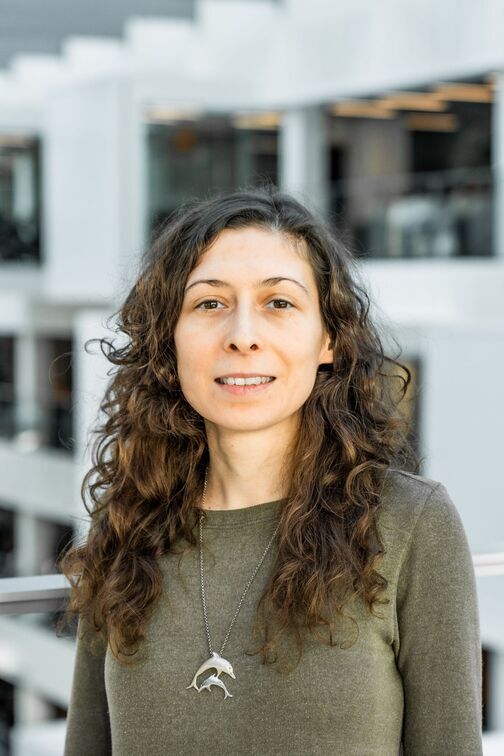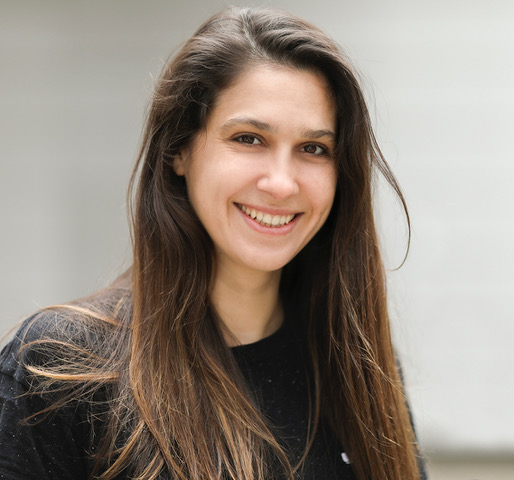
|
|
|
Programme > KeynotesPinar Tözün (IT University of Copenhagen, Denmark)
Title: Satisfying the Data Monster with Fewer Resources: A quest to feed the GPU in deep learning training Abstract: Deep learning tasks are computationally expensive requiring the use of powerful and expensive hardware accelerators such as GPUs and TPUs. Both the efficiency of the deep learning tasks and effective utilization of the accelerators depend on how fast the relevant data is moved to the accelerator, which still heavily depends on the CPUs. In this talk, we will look into the different aspects of reducing the CPU and data needs of deep learning to improve the end-to-end resource-efficiency of model training. First, we will explore today's landscape for the I/O path to GPUs. Then, we will investigate the impact of the work sharing and data selection on the performance of deep learning model training. Bio: Pınar Tözün is an Associate Professor and the Head of Data, Systems, and Robotics Section at IT University of Copenhagen. Before ITU, she was a research staff member at IBM Almaden Research Center. Prior to joining IBM, she received her PhD from EPFL. Her thesis received ACM SIGMOD Jim Gray Doctoral Dissertation Award Honorable Mention in 2016. Her research focuses on resource-aware machine learning, performance characterization of data-intensive systems, and scalability and efficiency of data-intensive systems on modern hardware.
Sarah Cohen-Boulakia (LISN, Université Paris-Saclay, France)
Title: A Decade After the Reproducibility Crisis in Bioinformatics: Toward Reusable Data-Analysis Workflows Abstract: Impossibility to redo our own analysis, failing to re-execute an analysis described in a recent paper: we have all experienced computational reproducibility issues. Ten years ago, the bioinformatics community had to face with the “reproducibility crisis” and has been pioneer in the design of solutions to better reproduce and reuse bioinformatics analysis pipelines. This talk will review current elements of solutions to design FAIR analysis pipelines, introduce results obtained in the ShareFAIR project (PEPR Santé Numérique) and go on to discuss the challenges posed by this domain and the remaining opportunities of research at the interface of graph algorithmics, databases and natural language processing. Bio: Sarah Cohen-Boulakia is a full Professor at Université Paris-Saclay. She has been working for twenty years in multi-disciplinary groups involving computer scientists and biologists or physicians of various domains. She has animated several working groups on reproducibility of scientific experiments and co-funded the National Reproducible Reserch Network. Dr. Cohen-Boulakia’s research expertise include provenance in scientific workflows systems, reproducibility of scientific experiments, integration, querying and ranking in the context of biological and biomedical databases. She was awarded the CNRS Silver Medal in 2024.
Oana Goga (INRIA CEDAR, Ecole polytechnique, France)
Title: Measuring and mitigating risks with AI-driven information targeting Abstract: In this talk, I will discuss risks associated with online advertising and micro-targeting and present methodological approaches for measuring and mitigating these risks. I will provide insights from some of our latest results on political ad micro-targeting, marketing to children, and tracking. I will discuss how our measurement studies informed European lawmaking, how citizens can help, and how researchers interested in assessing risks with online platforms can take advantage of the latest EU laws.To be announced Bio: Oana Goga is Research Director at Inria and leads the CEDAR team at the Laboratoire d’Informatique de l’École Polytechnique (LIX) since October 2024, following a seven-year as Chargée de Recherche CNRS at LIX and LIG. She holds a PhD from Sorbonne University (2014) and postdoctoral experience at the Max Planck Institute for Software Systems, where she pioneered the early study of online platform risks—including privacy, disinformation, political advertising, and targeted marketing. Awarded the CNRS Bronze Medal in 2024 and the Lovelace–Babbage Prize in 2023, Oana is recognized for her rigorous, impactful research tools such as AdAnalyst and CheckMyNews, which harness data donations to audit platform content and advertising ecosystems. Her findings have influenced both academia and policy—contributing to the European Digital Services Act and shaping regulations from the EU Commission. Since 2022, Oana is Principal Investigator of the ERC-funded MOMENTOUS project, investigating how AI-driven platforms exploit cognitive biases—a multidisciplinary effort spanning computer science, behavioral economics, cognitive and legal sciences.
|




